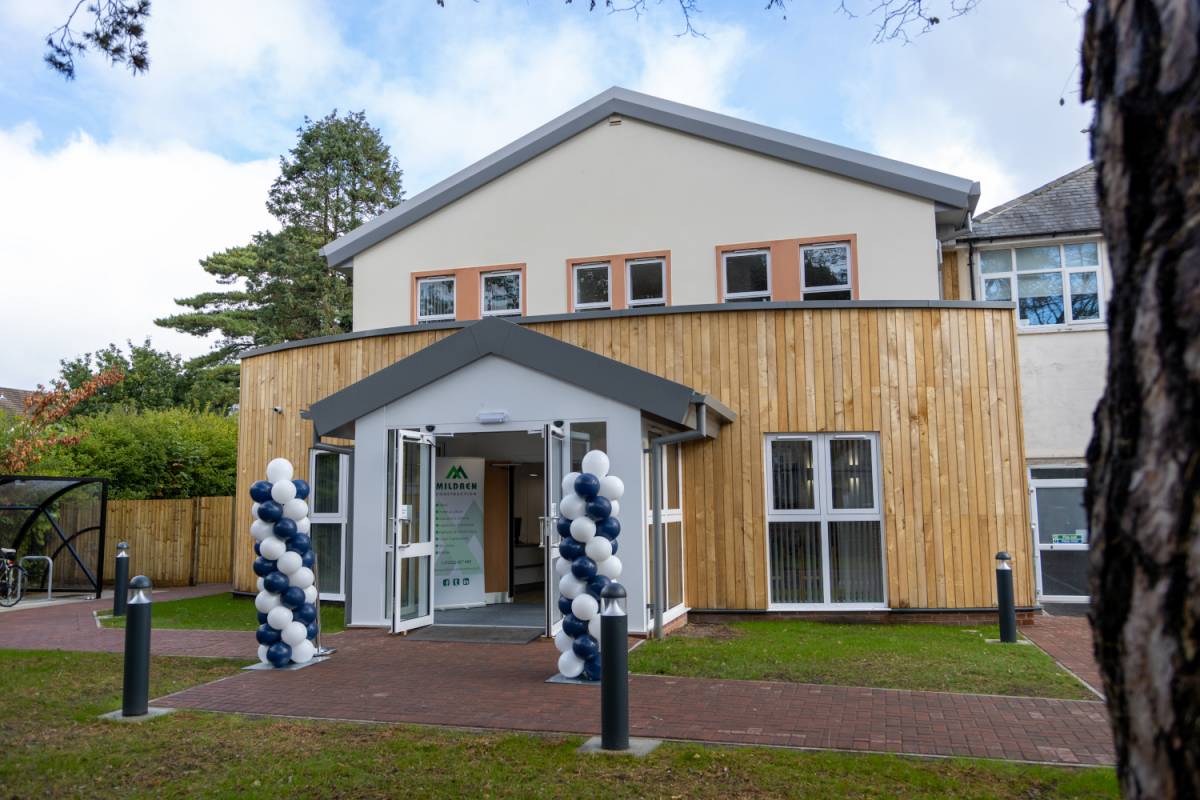Physio Neil Langridge suggests college's Integrated Rehabilitation Centre could set 'gold standard'
Prominent physiotherapist Neil Langridge believes the Bournemouth-based AECC University College’s new Integrated Rehabilitation Centre (IRC) sets a ‘gold standard’ that other institutions in the UK might strive to follow.
Dr Langridge became director of clinical and rehabilitation services at AECC earlier this year, leaving his high-profile role as consultant physiotherapist and clinical lead of musculoskeletal (MSK) services at Southern Health NHS Foundation Trust.
At a time when many NHS rehabilitation services are struggling to maintain their allocated spaces, the college’s multi-million-pound IRC manages to buck the depressing trend. As well as offering physiotherapy sessions to local people, AECC University College also delivers community chiropractic treatments, specialist MRIs, ultrasound, X-ray, a breastfeeding clinic and first contact practice in partnership with the Bournemouth Primary Care Network.
Services will now expand to include neurological rehabilitation, exercise classes, frailty and falls prevention, occupational health testing and sports rehabilitation.

'Gold standard'
‘My aim is for the IRC to be a gold standard for collaboration between services. We’re a forward-thinking organisation that prioritises collaboration to help patients reach their potential,’ Dr Langridge said.
‘We’re bringing professions together in what I would call a community of practice, based on competency, safety and capability. With different services working together in this way, we can create something really exciting and unique that will enable our patients to reach their potential.'
Dr Langridge, who has 27 years’ experience in the NHS under his belt, said: ‘The focus of all the rehabilitation treatment that takes place at the IRC will be about reaching potential. The outcomes of this will vary from person to person: it might be helping a disabled patient to get out of a chair unaided; or enabling a breathless patient to walk down the road. It might also be getting an elite athlete to the Olympics.
'Rehabilitation is massive: it’s not just getting fit and well. It encompasses everything that makes you you.
Five-year plan
We’re bringing professions together in what I would call a community of practice, based on competency, safety and capability ... we can create something really exciting and unique that will enable our patients to reach their potential [Neil Langridge]
In the first five years, Dr Langridge and his team will establish a broad range of physical, mental and emotional rehabilitation support, which should, in turn, 'map and parallel' the content of the courses available at AECC University College.
'We’ll have a core set of offerings: physiotherapy, chiropractic treatment, MSK, imaging packages and neurology,' Dr Langridge noted. 'We’ll offer rehabilitation for MSK conditions and, over time, we’ll build up the team with clinicians from all different specialisms. From doctors, to speech and language therapists, neurologists, mental health support, vocational support and charitable interventions.'
Local focus
'We’re also looking to support people who can’t access care,' Dr Langridge said. 'They might have poor health literacy and be unable to access services. They find themselves discharged from primary or secondary healthcare and feel stuck.
'We’re also looking to support the health service and social care services locally with health campaigns. As a society, we are facing problems like obesity, diabetes and physical inactivity. We should be creating campaigns to help tackle those problems locally and I think we’re agile enough to do it.'
Involving students
Dr Langridge outlined plans to combine supporting students and their practice with maintaining a community focus. 'That’s what appeals to me in particular: providing something for our students that is different, as well as following a community-focused rehabilitation model,' he said.
‘We aim to offer students placements in the IRC, as part of their course. Allowing our students to play a significant role in the centre, carefully supervised, means we can keep the cost of treatment down too.
‘We’ll essentially follow a triage model. If a patient comes to us and doesn’t know what help they need, we’ll offer them a short 10-minute phone call, or an email exchange, which will direct them to the right part of the centre.
‘If the issue is relatively straightforward to provide treatment for, we can quickly get the patient in to see a student, overseen by a clinical lead, and treatment can begin right away. Alternatively, if someone comes in with persistent lower back pain who has seen three people and hasn’t got any better, they will need to see a fully-qualified member of staff.'
Dr Langridge added: ‘Patients can also self-select: they might really want to see a chiropractor, or they might want to see a physiotherapist.’
The 746-square metre building, which has nine new treatment rooms and a large multi-zoned physical rehabilitation space, was officially opened at a ceremony last month (13 October).
It was funded in part by a £2.7 million ‘Getting Building Fund’ grant from Dorset Local Enterprise Partnership), with AECC University College providing additional funding towards the cost of the facilities and suite of courses and services. The new facilities will support the delivery of new health sciences courses – including speech and language therapy, occupational therapy, and dietetics and podiatry – which are due to start in January 2023.
Author: Ian A McMillan
Share it with














